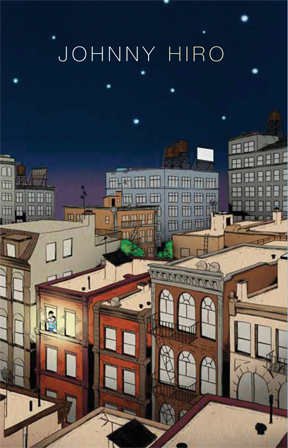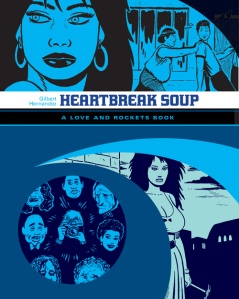 It’s Gilbert Hernandez’s birthday, and it’s tough to pick a particular book to recommend because he’s incredibly talented and surprisingly prolific. (That’s a lovely combination, isn’t it?) I’ll let sentiment guide my choice and point you to his Palomar stories, which originally ran in Love and Rockets from Fantagraphics and have been collected roughly 36 times in about as many different configurations.
It’s Gilbert Hernandez’s birthday, and it’s tough to pick a particular book to recommend because he’s incredibly talented and surprisingly prolific. (That’s a lovely combination, isn’t it?) I’ll let sentiment guide my choice and point you to his Palomar stories, which originally ran in Love and Rockets from Fantagraphics and have been collected roughly 36 times in about as many different configurations.
I would recommend you go with the handsome, affordable, focused paperbacks in the Love and Rockets Library: Heartbreak Soup, Human Diastrophism, and Beyond Palomar. For those of you who aren’t familiar with Palomar, it’s a small Central American town populated with interesting, complex people. It’s also populated with a variety of kinds of stories and tones, gritty realism one moment, magical realism the next. Hernandez really builds that web of community in these stories, exploring ties of family and friendship, lingering grudges, outside influences, sex, love and death.
It’s also fun to play “if you like” with the Palomar stories, because there are so many possibilities. People who have been enjoying the comics on Viz’s SigIKKI site might like these, not because of any specific carry-over in style or content, but because they’re so good in ways that are specific to Hernandez’s talents. People who like soap operas, particularly smart, place-grounded ones like EastEnders, will find a lot to like as well. (Full disclosure: I’m only really familiar with the early going of EastEnders when it was really ambitious in its combination of economic reality and emotional intensity. I have no idea if it’s still any good.) And fans of the sensual, dreamy, unsettling movies by Pedro Almodovar will feel right at home, especially with Hernandez’s leading lady, sexy, formidable Luba.
And since I’m on the subject, and since Hernandez is relatively prolific, I’d love to hear which of his non-Palomar comics people would recommend. I need to catch up.
Update: Via its Twitter feed, AdHouse mentioned that today is also Jim Rugg’s birthday, so you could celebrate that by picking up a copy of Afrodisiac, which Rugg created with Brian Maruca. I reviewed it here. Or you could pick up a copy of Rugg and Maruca’s Street Angel from SLG, which is having a sale at its web store through Feb. 3, also discovered via that publisher’s Twitter feed.







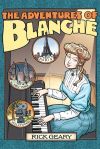

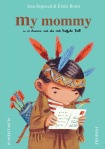
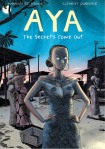

 I’m always happy to see more of Adam Warren’s brilliant
I’m always happy to see more of Adam Warren’s brilliant  It’s always wise to keep an eye on CMX’s shôjo offerings, as they’re usually pretty charming. New this month is
It’s always wise to keep an eye on CMX’s shôjo offerings, as they’re usually pretty charming. New this month is  A few years back, the big blogosphere hit was Jim Rugg and Brian Marucca’s
A few years back, the big blogosphere hit was Jim Rugg and Brian Marucca’s  You may know
You may know  I’m crazy about Rick Geary’s Treasury books, but I’m cheap so I wait for the paperback versions. Happily, NBM slates the soft-cover version Geary’s A Treasury of 20th Century Murder: Famous Players for publication. It examines the murder of early Hollywood director William Desmond Taylor. (Page 271.)
I’m crazy about Rick Geary’s Treasury books, but I’m cheap so I wait for the paperback versions. Happily, NBM slates the soft-cover version Geary’s A Treasury of 20th Century Murder: Famous Players for publication. It examines the murder of early Hollywood director William Desmond Taylor. (Page 271.)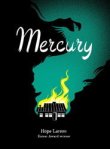 The gifted Hope Larson delivers her next work,
The gifted Hope Larson delivers her next work,  Page 301 promises more goodness from Viz Signature. My poor, poor wallet, how you will weep. New to the imprint are Natsume Ono’s
Page 301 promises more goodness from Viz Signature. My poor, poor wallet, how you will weep. New to the imprint are Natsume Ono’s  And, of course, Viz triggers squeals across the internet by offering more manga from Fumi Yoshinaga. It’s
And, of course, Viz triggers squeals across the internet by offering more manga from Fumi Yoshinaga. It’s 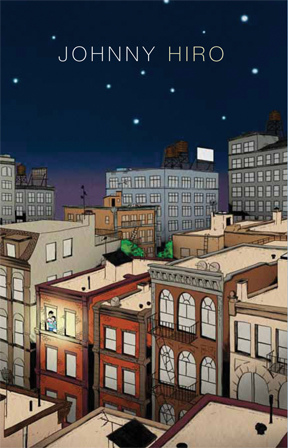 Johnny and Mayumi are young, in love, and living in New York City. That means they work too hard, live in a kind of crappy apartment, and never seem to have enough money at the end of the month. But they have each other and all of the affection, support and loyalty one could hope for; they also have cats. Those things go a long way to compensate for the overworked, underpaid grind.
Johnny and Mayumi are young, in love, and living in New York City. That means they work too hard, live in a kind of crappy apartment, and never seem to have enough money at the end of the month. But they have each other and all of the affection, support and loyalty one could hope for; they also have cats. Those things go a long way to compensate for the overworked, underpaid grind. I can’t remember if it was in Mad or Cracked or Crazy, but many years ago there was a great parody of Casper, the Friendly Ghost called “
I can’t remember if it was in Mad or Cracked or Crazy, but many years ago there was a great parody of Casper, the Friendly Ghost called “ Updated: I almost never look at the Marvel section of the ComicList, so I missed the listing for the collection of the
Updated: I almost never look at the Marvel section of the ComicList, so I missed the listing for the collection of the 
